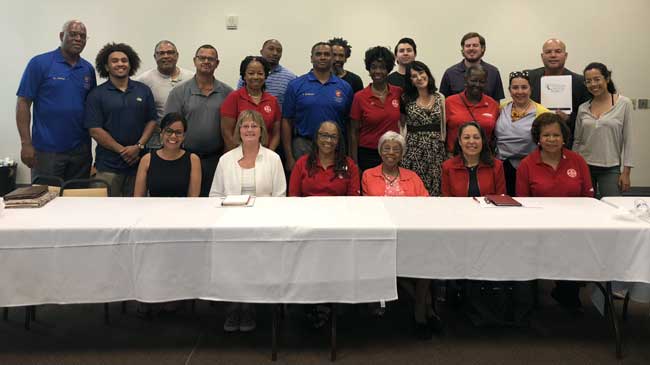
By Tylan Nash
The Veteran’s History Project arrived in New Orleans on May 9TH hoping to enlist New Orleans residents interested in interviewing war veterans for this Library of Congress National Project. With support from the local chapter of the American Association for Retired Persons, residents trained on how they could help veterans get their war stories recorded and shared with the public.
“The idea was to have individuals around the country interview the veterans in their lives, and [have] their communities help gather their first-person narratives,” said Monica Mohindra, the Senior Liaison Specialist at the Library of Congress for the Veterans History Project.
The United States Congress created the Veterans History Project in October 2000 as part of the American Folklife Center at the Library of Congress. The purpose of the project is to collect, preserve, and make accessible the personal accounts of America’s Wartime Veterans so that future generations may hear directly from veterans and better understand their selfless service. Veterans who served in the United States Military, in any capacity, from World War I through recent conflicts are eligible to participate, regardless of branch or rank.
Acting as historians themselves, individuals and organizations from around the country were called to participate in this War Preservation Effort by collecting first person interviews and sentimental artifacts that are then sent to be archived in The Library of Congress.
The project’s staff said anyone over the age of 15 can participate in this National Preservation Effort. For example, the Office of the Veteran History Project has received information from veterans’ family members and friends, high school and university educators, authors, veterans’ service organizations, places of worship, retirement communities, scout troops, local businesses and professional associations. Loved ones of a deceased veteran may also submit their veteran’s first-person narratives, and any other artifacts that show that they participated in a war.
More than 20 residents showed up to the workshop on Xavier University’s Campus, to learn more about what rules and regulations they should follow when recording and editing the histories they collect, before submitting it to the Veterans History Project.
Morris Warner, a U.S. veteran who served his country in the Marine Corps for more than 30 years, and retired as a Sergeant General, reflected on what it meant to him to be able to serve his country.
“I wanted serve my country, because I know to live in America, we need to be a part of it,” he said. He added that his experiences as a Black veteran during segregation, and what he experienced during his service at this time, was an important story to record and share.
“The military is an extension of our society,” he said, “the people in the military are people you will find in everyday life, and with that they will bring along their biases.”
Mohindra also gave her opinion on why she believes that it is important that African-American Veterans get their story out to the public. “It is a story that is not as well-known, or told enough, and the experiences are unique to their background,” she said.
Interested residents can learn more about how to participate in the project at the Library of Congress’ site www.loc.gov/vets.
Recommended For You.



Be the first to comment